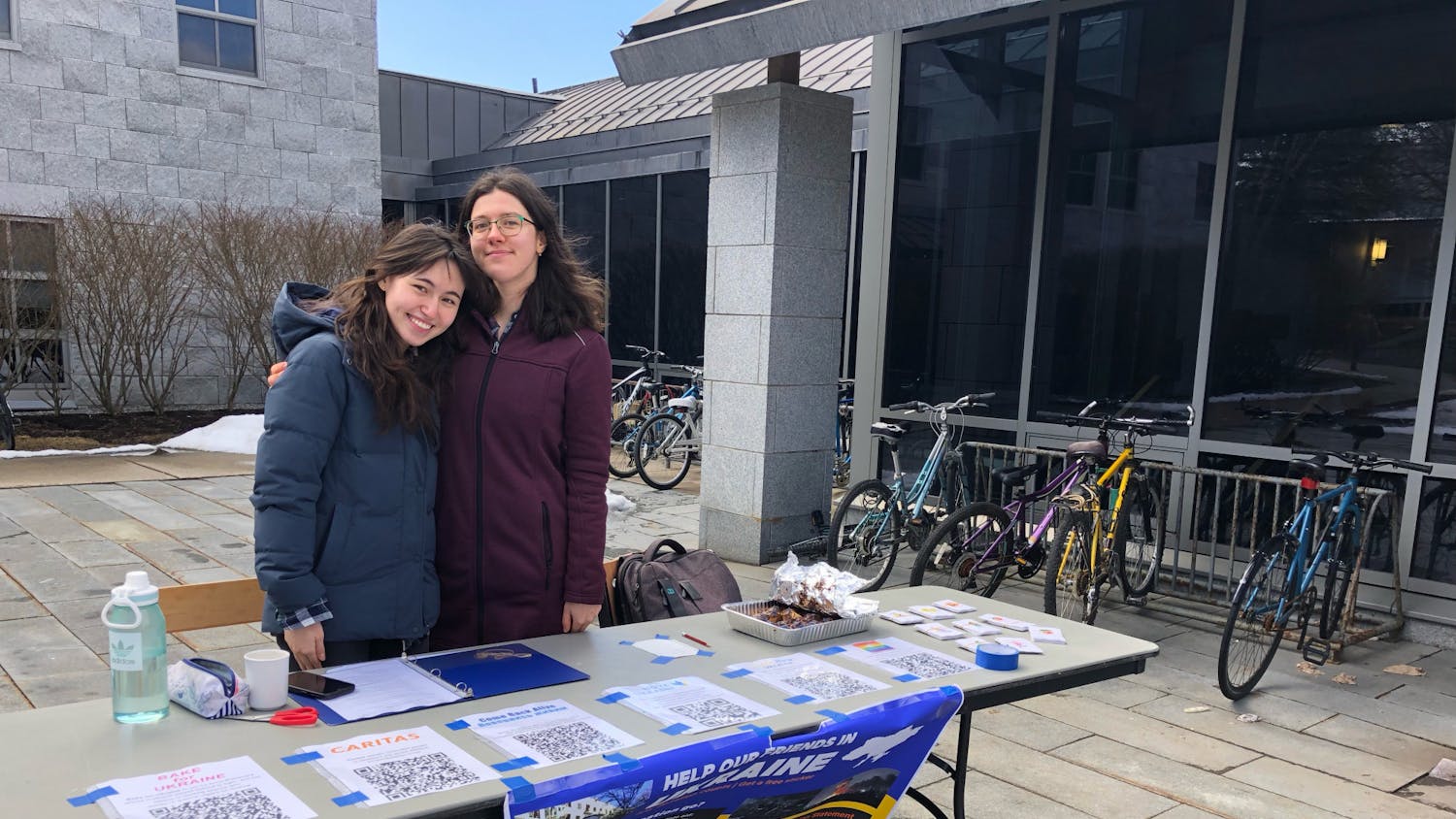I, like the Middlebury community at large, join in an unequivocal condemnation of Russia’s aggression on Ukraine, whose violation of international sovereignty has precipitated the fastest-growing refugee crisis since WWII in Europe. I have had many conversations with friends and family expressing feelings of despair, hopelessness, anger, anxiety and loss; there is no doubt that we as students and as a campus community are living, yet again, through another tragic moment in history.
Throughout the past month, however, I have felt an underlying discomfort with the discrepancy between the breadth and depth of responses to Ukraine’s refugee crisis in comparison to other crises – both chronic and acute — that have occurred in places more unfamiliar and foreign to the American imagination than Ukraine. And I think it’s worth a conversation — whatever your initial reaction may be.
The outpouring of calls for solidarity with Ukraine have been a heart-warming and hope-inducing response. Important declarations have come from the administration, the SGA and academic departments. Even more encouragingly, these declarations have been followed with action. Governor Phil Scott signed a bill to donate nearly $645,000 of humanitarian aid to the people of Ukraine (that totals $1 for every Vermonter plus $1,749, or the sum of Russian-sourced products from the start of the invasion to when Vermont took Russian Vodka off its shelves). There has been an outpouring of donations, including creative demonstrations of support, like when over 60,000 well-meaning Air-BnB users booked stays in Ukraine (without actually planning on going) in a quirky and innovative transnational act of mutual aid.
Supporting Ukraine has become a dinner table (or dining hall) discussion with students, on par with — and perhaps even more frequently than — rising inflation, sky-rocketing gas prices and confirmation hearings for the first Black woman to join the Supreme Court. It has, quite literally, become a bake-sale type issue; donation boxes are popping up and Middlebury’s American Flatbread is donating $3 to the cause for every pizza they bake on Thursdays for the next month. Solidarity for Ukraine has woven itself into the cultural fabric of America in 2022 — not just in the news cycles or the geopolitical history books but in the daily reproductions of our lives.
Yet I can’t help but think about the many other crises across the globe, from the collapse of democracy in Myanmar to the refugee crisis in Syria to the rise of autocracy in Venezuela, that in their own way deserved an American reckoning — a reckoning that largely never happened. I believe that this discrepancy reveals how “we” (as Americans, and Middlebury-ians, as humans in the Western world) perceive ourselves — and dole out sympathy and support accordingly.
Whose way of life, when threatened with destruction, becomes a threat to our way of life? Who counts as “we”?
It seems clear right now that Ukraine, as a European country — and, perhaps more importantly, as a country who has indicated intent to join NATO and withdraw from the Russian sphere of influence — is part of the “we.
Other countries and populations with cultural practices, religions, and ways of life less familiar to the dominant, white culture and media narrative of the U.S. that have experienced humanitarian crises of great magnitude are not as included in that same “we.”
It’s not just me that has noticed this; journalists and humanitarian aid workers who have spent careers covering crises such as the Syrian refugee crisis have spoken out, with a passion and anger born from experience. Take Arwa Damon, an award winning senior international correspondent for CNN, who writes, “Today it feels like the world has woken up and finally realized how ruthless and murderous the Russian government is. As if for years Syrians were not dying under the same Russian bombs . . . I hear it in the rhetoric coming out of from [sic] politicians, journalists and global leaders. Rhetoric about how Ukrainians are a ‘prosperous middle-class people,’ ‘the family next door,’ ‘civilized.’ As if what is defined as a human worth saving is identified by the color of their skin, the language they speak, the religion they practice or where they were born.”
I will admit this piece is an uncomfortable thing to write. I don’t want to turn a people’s suffering into an example of the anti-racist and anti-xenophobic work we still have to accomplish. I’m afraid that the commentary will be received as polarizing — that people will feel personally criticized, that this will be read as “you’ll never do enough,” that we won’t be able to sit with the ambiguity of the situation.
Perhaps that’s because we live predominantly within a framework of scarcity — a framework which tells us that by advocating for increased support of country x, country y will inevitably receive less help. I believe that doesn’t have to be the answer.
This is not to trivialize the acute humanitarian suffering that is happening right now, nor to suggest that we need to shift our resources away from Ukraine in order to help other populations. It is true that Putin’s blatant violation of international sovereignty is unique, and that the speed and acuteness with which we are seeing this exodus and violence is shocking.
But human suffering knows no borders. War crimes against another country and war crimes within your borders are still war crimes; “internal displacement” is still displacement. The more than 3.6 million Ukranians that have fled the war’s violence now join the 84 million people already forcibly displaced from their homes as of mid-2021.
Ukraine has been on everybody’s mind. It’s worth taking a mirror to ourselves as an institution, a community and individuals to see what we can learn about who “we” are. We can strive to hold the nuance of the situation, to celebrate the solidarity expressed for Ukraine and deepen our awareness of how we can support the global community as a whole.
Connor Wertz is a member of the class of 2022.


